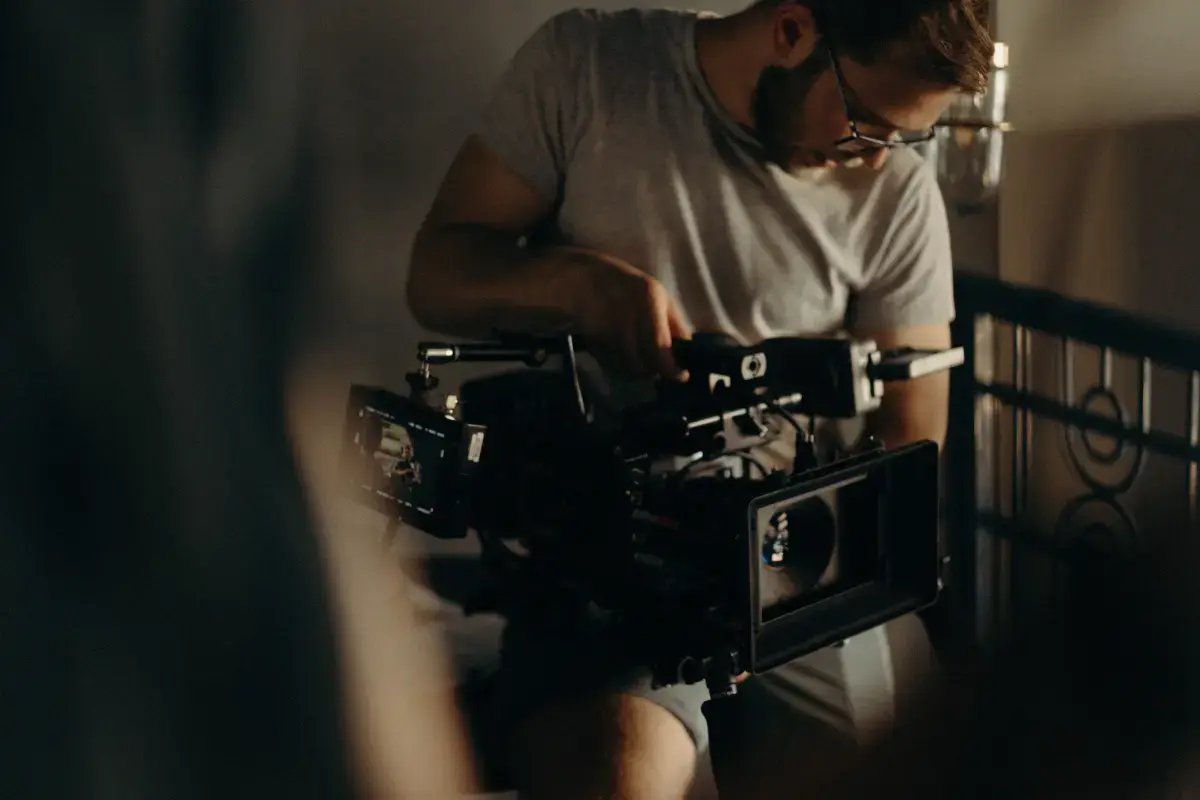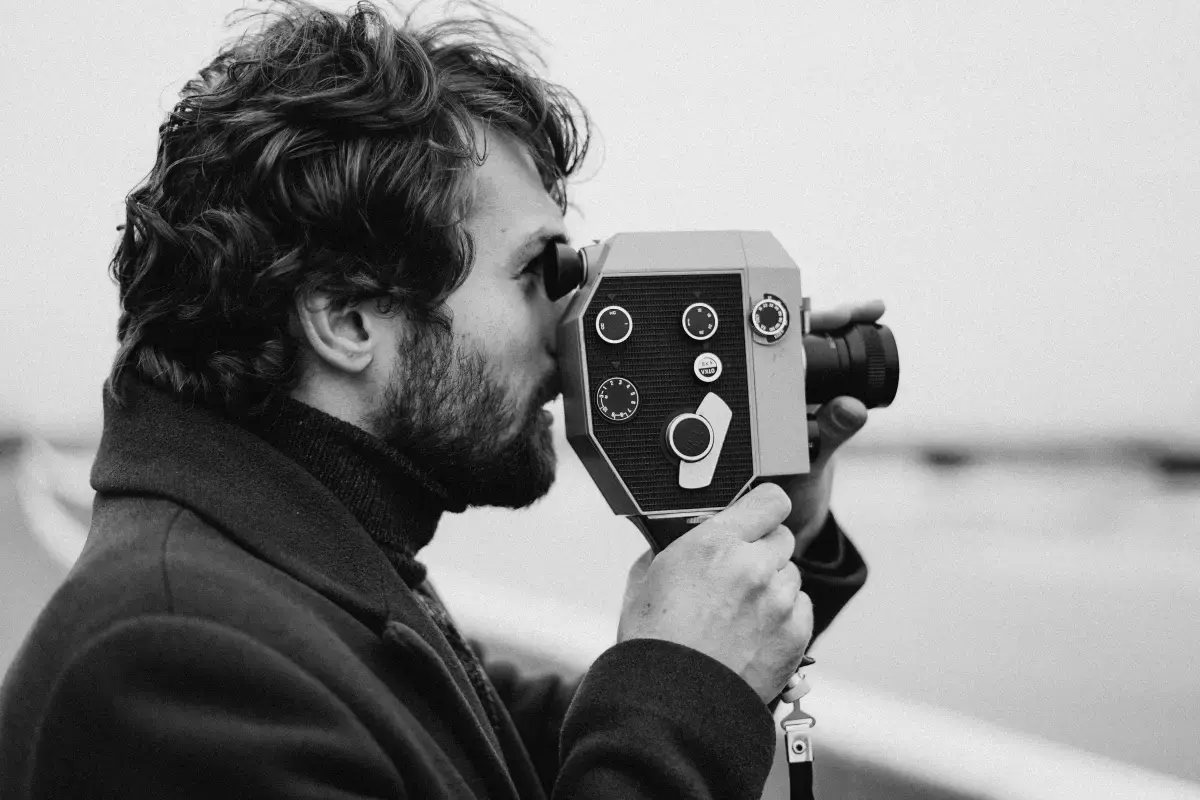
Video Editor Job Description
What is a Video Editor Professional?
A video editor is responsible for assembling recorded raw footage, both from internal and external sources, into a cohesive whole that tells a story. He or she works with the director and other editing staff to determine what parts of the filmed scenes will appear in the final product, as well as what order they will appear in. The job requires creative storytelling skills, as well as an understanding of how visual elements can be used to create specific effects and emotions.

What does a Video Editor Expert do?
The ability to work long hours under tight deadlines is also essential. Most video editors start out working on small independent projects before moving on to larger ones. Some eventually become directors themselves or move into related fields such as post-production sound design or animation.

What are the Skills of a Video Editor?
A video editor is responsible for assembling recorded raw material into a finished product that tells a story or communicates a message in a compelling way. A successful video editor must have strong storytelling skills and an eye for detail, as well as the technical know-how to use editing software (Adobe Premiere Pro, Final Cut Pro, Avid Media Composer) and other tools of the trade. The best way to become a skilled and experienced video editor is to practice, practice, practice. There are also many online tutorials and resources available that can teach you the basics of how to use different types of editing software.

What makes an Expert Video Editor?
Once you have mastered the basics, it’s important to get experience working with real clients on actual projects. This will give you insight into what goes into creating effective videos for different purposes (e.g., commercial advertising vs corporate training). Passionate editors who keep up with trends in their industry by reading publications such as DV Magazine or American Cinematographer are more likely stand out among their peers

What level of Experience & Qualifications are required to be a Video Editor?
Industry experience: At least a few years professional video editing experience for television, film, online media or other platforms. 2. Training: Comprehensive knowledge and understanding of audio/video equipment and software used for production and post-production, such as Adobe Premiere Pro, Final Cut Pro X, Avid Media Composer or other common programs. 3. Qualifications: A degree in a relevant field such as video editing/film production or equivalent is preferred but not essential. 4. Education: Advanced level computer literacy with the ability to troubleshoot software-related problems quickly and efficiently; excellent organisational skills; keen eye for detail when it comes to colour grading; strong aesthetic sensibility when it comes to creating compelling visuals; an aptitude for working creatively under pressure often within tight deadlines; sound knowledge of compression techniques used in web delivery formats (H.264 etc). • A strong working knowledge of editing software, such as Adobe Premiere Pro or Final Cut Pro. • At least 3-5 years of professional experience editing videos and creating motion graphics. • Ability to review raw footage and sound files, identify clips and sections to use in the final product, create rough layout/structure/timelines for projects. • Ability to take direction from creative directors or producers on concept ideas for visuals. • Knowledgeable on video encoding protocols such as codecs, formats (HLS), compressions etc.. • Familiarity with color correction; experience with a wide range of visualization technologies including animation software (e.g., Cinema4D). • Excellent organizational skills – able to keep a project moving forward efficiently while considering customer needs, schedules and deadlines correctly prioritize tasks maintain deadlines and manage competing demands effectively • Experience in cutting trailers for new films or video games • Education: Bachelors degree in film/video studies, broadcast media production or related field preferred but not required

What is the Salary of a Video Editor?
The average salary of a Video Editor ranges from approximately $20,000 per year for a Junior Video Editor to $75,000 per year for a Senior Video Editor. Entry-level video editors typically start off at an hourly wage of about $10 to $15 per hour with no experience. With experience and specializations, this rate can climb up to as much as 25 dollars an hour or more. The salary range may also be influenced by the industry in which one works, such as movies and television versus corporate multimedia. While working on feature films may pay higher than other industries due to the importance of getting things right given their large budgets and more demanding clients, editing commercials often pay less because these projects come and go quickly without room for perfectionism though there are exceptions depending on the size/scope of production. Video Editors in managerial roles tend to earn significantly more than those at entry level positions as they are responsible for leading teams of editors or overseeing projects across multiple departments within organizations or production companies while taking responsibility when errors occur. Senior Video Editors usually earn salaries between 55K - 75K+ USD while having years worth of professional experience in the field coupled with deep knowledge in fields related to creative arts direction along with technical skill sets that are kept updated over time relating to managing post-production workflows, recommending software solutions etc .

What are the Working Conditions for a Video Editor?
General working conditions for a video editor typically involve prolonged periods of sitting, in order to review footage and create a coherent story. Video editors must also have an eye for detail, be highly creative and have strong technical abilities in order to produce the best product possible. Video editors often work under tight deadlines which can require long hours and overtime. This is especially true when working on smaller productions with less lead time or sudden changes in requests from employers or clients that need quick turnaround due to unexpected circumstances. The majority of video editing is done via computer these days either using professional grade applications such as Adobe Premier Pro or Final Cut Pro on Macs, although some special effects may still need manual manipulation with hands-on tools like roto pens, X-Acto blades and other specialized equipment depending on the nature of what needs to be done.. Additionally managing digital storage media such as hard drives are usually part of the job duties associated with this occupation; all files must be securely stored properly backed up through both physical means (RAID arrays) as well as cloud storage providers so any system failure won’t disrupt production timelines in addition keep everything easily manageable quickly identifiable by its source client project etc… As well metadata tagging for audio visual assets are important for rapid retrieval retrieval near post production tasks . . Furthermore ,Care should also be taken when handling finished tapes not just from damage but ensuring contamination free ; Near Post Production facilities often adhere strictly contamination protocol staff undergo periodic health checkups to ensure they dont carry harmful viruses that might corrupt facility harddrives causing costly delays .. Also like all occupation safety protocols should be practiced while operating equipment through practice drills proper knowledge ; electrical cables machinery can cause accidents if not handled correctly therefore knowing correct procedures keep everyone safe and productive .. Therefore working conditions could vary tremendously thus requiring flexibility and adaptability for each videographers individual circumstance ...

What are the roles and responsibilities of a Video Editor?
Cutting and joining footage together according to a predefined storyboard or script
Adding visual effects, titles, or other graphic enhancements
Adjusting audio levels and applying sound effects
Incorporating animations or still images into the video
Transitions between scenes
Rendering the final production in a format suitable for distribution
ensuring that the finished product meets all technical specifications agreed upon with the client
. coordinating closely with other members of the post-production team, including directors, producers, sound editors
. select shots that best reflect the mood or message of thevideo
providing input on ways to improve
working within budget and time constraints
solving technical issues
selecting appropriate music
assembling videos in the project
complying with copyright laws
exporting final videos
delivering Videos to broadcast
developing unique visual solutions
organizing footage
digitizing analog videotapes

Where can I find Video Editor jobs?
- Create a profile on gigexchange and promote your Video Editor skills to advertise you are Open to New Work Opportunities
- Ensure your Resume (or CV), or online work profile is up to date and represents your skills and experience. Ensure your reputation reflects your ability & attitude.
- Apply for Video Editor Jobs advertised on gigexchange.
- Practise Video Editor interview techniques to ensure you represent your personality and ability succinctly and confidently.
- Accept the job offer if the salary meets your expectations and the employer mission and purpose reflects your core values.
Jobs
What are the best job boards for Movie Editor jobs?

How can I hire Video Editor staff online for my business?
The best job board for recruiting Video Editor experts is gigexchange.com. Advertise full-time, part-time or contract jobs to find, hire & recruit trusted, experienced and talented Video Editor candidates near you.

Are Video Editor roles in demand in 2026?
Video Editor experts are still in high demand in 2026. If you are an experienced Video Editor or looking to train and become one. The job market is looking strong for Video Editor jobs near me.